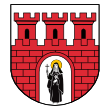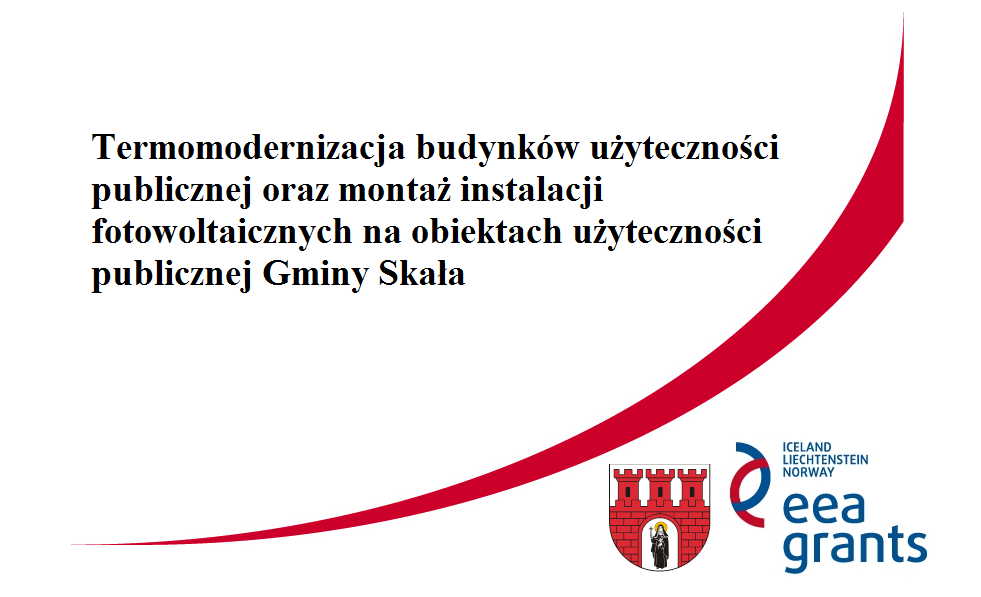Termomodernizacja
Informacje ogólne
Norweski Mechanizm Finansowy oraz Mechanizm Finansowy Europejskiego Obszaru Gospodarczego (czyli tzw. fundusze norweskie i fundusze EOG) są formą bezzwrotnej pomocy zagranicznej przyznanej przez Norwegię, Islandię i Liechtenstein nowym członkom UE. Fundusze te są związane z przystąpieniem Polski do Unii Europejskiej oraz z jednoczesnym wejściem naszego kraju do Europejskiego Obszaru Gospodarczego (UE + Islandia, Liechtenstein, Norwegia). W zamian za pomoc finansową, państwa-darczyńcy korzystają z dostępu do rynku wewnętrznego Unii Europejskiej (choć nie są jej członkami). Obecnie jest realizowana druga edycja funduszy norweskich i EOG (lata 2009 – 2014). Poprzednia edycja dotyczyła okresu 2004-2009.
Europejski Obszar Gospodarczy, w skrócie EOG – to strefa wolnego handlu i Wspólny Rynek obejmujące kraje Unii Europejskiej oraz Islandię, Liechtenstein i Norwegię. EOG opiera się na czterech fundamentalnych wolnościach: swobodzie przepływu ludzi, kapitału, towarów i usług.
Głównymi celami funduszy norweskich i funduszy EOG są:
- przyczynianie się do zmniejszania różnic ekonomicznych i społecznych w obrębie Europejskiego Obszaru Gospodarczego oraz
- wzmacnianie stosunków dwustronnych pomiędzy państwami-darczyńcami, a państwem beneficjentem.
Odbiorcami funduszy norweskich oraz funduszy EOG jest łącznie 16 krajów należących do Unii Europejskiej – czyli 12 państw, które przystąpiły do wspólnego rynku w roku 2004 i roku 2007, oraz Hiszpania, Portugalia, Grecja i Chorwacja.
W ramach owych mechanizmów finansowania w każdym z Państw – Beneficjentów ustanowiono Krajowe Punkty Kontaktowe. Są one odpowiedzialne za wdrażanie funduszy na poziomie krajowym. W Polsce rolę takiego Punktu sprawuje Ministerstwo Infrastruktury i Rozwoju.
Realizacją poszczególnych programów zajmują się Operatorzy, czyli instytucje specjalizujące się i zajmujące daną dziedziną. Zadania Operatorów to m.in. przygotowanie programu, nabór wniosków, wybór projektów i monitoring ich realizacji oraz promocja projektów.
Gmina Skała zyskała dofinansowanie z Programu PL04 ”Oszczędzanie energii i promowanie odnawialnych źródeł energii”. Operatorem Programu jest Ministerstwo Środowiska we współpracy z Narodowym Funduszem Ochrony Środowiska i Gospodarki Wodnej.
Wartość programu z funduszy EOG: 145 000 000 euro
Celami projektu są redukcja emisji gazów cieplarnianych i zanieczyszczenia powietrza oraz zwiększenie udziału energii pochodzącej ze źródeł odnawialnych w ogólnym bilansie zużycia energii.
Poprzez fundusze EOG i fundusze norweskie, Islandia, Liechtenstein i Norwegia przyczyniają się do zmniejszania nierówności społecznych i ekonomicznych oraz wzmacniania relacji dwustronnych z państwami beneficjentami w Europie. Trzy państwa ściśle współpracują z UE na podstawie Porozumienia o Europejskim Obszarze Gospodarczym (Porozumienie EOG).
W okresie 2009–2014 wartość funduszy EOG i funduszy norweskich wynosi 1,79 miliarda euro. Norwegia zapewnia około 97% łącznego finansowania. Fundusze są dostępne dla organizacji pozarządowych, instytucji badawczych i szkół wyższych, sektora publicznego i sektora prywatnego w 12 nowo przyjętych państwach członkowskich UE oraz Grecji, Portugalii i Hiszpanii. W ich ramach ma miejsce szeroka współpraca z podmiotami z państw darczyńców, a przedsięwzięcia mogą być wdrażane do 2016 r.
Najważniejsze obszary wsparcia obejmują ochronę środowiska i zmiany klimatyczne, badania i stypendia, społeczeństwo obywatelskie, ochronę zdrowia i wsparcie dla dzieci, równość płci, sprawiedliwość i dziedzictwo kulturowe.
Więcej przydatnych informacji na stronie
Przydatne linki
- http://eeagrants.org/ → Strona oficjalnego serwisu Funduszy EOG w języku angielskim,
- http://www.eog.gov.pl/ → Strona oficjalnego serwisu Funduszy EOG w języku polskim,
- https://www.mos.gov.pl/ → Strona Ministerstwa Środowiska – Operatora Programu PL04,
- http://www.nfosigw.gov.pl/ → Strona Narodowego Funduszu Ochrony Środowiska i Gospodarki Wodnej – instytucja bezpośrednio nadzorująca Projekt)
- II Konferencja informacyjna podsumowująca projekt ”Termomodernizacja budynków użyteczności publicznej oraz montaż instalacji fotowoltaicznych na obiektach użyteczności publicznej Gminy Skała”
- II Konferencja podsumowująca projekt „Termomodernizacja budynków użyteczności publicznej oraz montaż instalacji fotowoltaicznych na obiektach użyteczności publicznej Gminy Skała”
- I Konferencja informacyjna otwierająca projekt ”Termomodernizacja budynków użyteczności publicznej oraz montaż instalacji fotowoltaicznych na obiektach użyteczności publicznej Gminy Skała”
- I Konferencja informacyjna otwierająca projekt ”Termomodernizacja budynków użyteczności publicznej oraz montaż instalacji fotowoltaicznych na obiektach użyteczności publicznej Gminy Skała”
- Budynki użyteczności publicznej Gminy Skała w trakcie Termomodernizacji
- Budynki użyteczności publicznej Gminy Skała przed termomodernizacją
- Informacja o projekcie ”Termomodernizacja budynków użyteczności publicznej oraz montaż instalacji fotowoltaicznych na obiektach użyteczności publicznej Gminy Skała”
English version
General information
The Norwegian Financial Mechanism and the Financial Mechanism of the European Economic Area (ie the so-called Norwegian funds and EEA funds) are a form of non-returnable foreign aid granted by Norway, Iceland and Liechtenstein to new EU members. These funds are related to Poland’s accession to the European Union and the simultaneous entry of our country into the European Economic Area (EU + Iceland, Liechtenstein, Norway). In exchange for financial assistance, donor countries benefit from access to the internal market of the European Union (although they are not members of it). At present, the second edition of the Norwegian and EEA funds is being implemented (2009 – 2014). The previous edition concerned the period 2004-2009.
The European Economic Area, in short EEA – is a free trade zone and a Single Market covering the European Union countries as well as Iceland, Liechtenstein and Norway. The EEA is based on four fundamental freedoms: freedom of movement of people, capital, goods and services.
The main objectives of the Norwegian funds and EEA funds are:
contributing to reducing economic and social disparities within the European Economic Area and
strengthening bilateral relations between donor countries and the beneficiary state.
The recipients of Norwegian funds and EEA funds are a total of 16 countries belonging to the European Union – that is 12 countries that joined the common market in 2004 and 2007, as well as Spain, Portugal, Greece and Croatia.
As part of these financing mechanisms, National Contact Points were established in each of the State Beneficiaries. They are responsible for the implementation of funds at the national level. In Poland, the role of such a Point is exercised by the Ministry of Infrastructure and Development.
The implementation of individual programs is carried out by the Operators, ie institutions specializing in and dealing with a given field. Operator’s tasks include preparation of the program, call for proposals, selection of projects and monitoring of their implementation and promotion of projects.
The Skała commune has received funding from the PL04 Program „Saving energy and promoting renewable energy sources”. The Operator of the Program is the Ministry of the Environment in cooperation with the National Fund for Environmental Protection and Water Management.
Value of the program from EEA funds: EUR 145 million
The goals of the project are to reduce greenhouse gas emissions and air pollution, and to increase the share of energy from renewable sources in the overall energy consumption balance.
Through EEA grants and Norwegian funds, Iceland, Liechtenstein and Norway contribute to reducing social and economic inequalities and strengthening bilateral relations with beneficiary countries in Europe. The three countries work closely with the EU on the basis of the Agreement on the European Economic Area (EEA Agreement).
In the period 2009-2014, the value of EEA funds and Norwegian funds is EUR 1.79 billion. Norway provides about 97% of total funding. Funds are available for NGOs, research institutions and universities, the public sector and the private sector in the 12 newly admitted EU Member States and Greece, Portugal and Spain. Under them, there is extensive cooperation with entities from donor countries, and projects can be implemented by 2016.
The most important areas of support are environmental protection and climate change, research and scholarships, civil society, health protection and support for children, gender equality, justice and cultural heritage.
More useful information on the site
Useful links
- http://eeagrants.org/ → Website of the official website of the EEA Funds in English,
- http://www.eog.gov.pl/ → Website of the official website of the EEA Funds in Polish,
- https://www.mos.gov.pl/ → Website of the Ministry of the Environment – Program Operator PL04,
- http://www.nfosigw.gov.pl/ → Website of the National Fund for Environmental Protection and Water Management – an institution directly supervising the Project)
- II Information Conference summarizing the project „Thermo-modernization of public utility buildings and installation of solar installations on public facilities of the Skała Commune”
- Second Conference summarizing the project „Thermo-modernization of public utility buildings and installation of solar installations on public utilities in the Skała commune”
- I Information conference opening the project „Thermo-modernization of public utility buildings and installation of solar installations on public facilities of the Skała Commune”
- I Information conference opening the project „Thermo-modernization of public utility buildings and installation of solar installations on public facilities of the Skała Commune”
- Public buildings of the Skała commune during the thermo-modernization
- Public buildings of the Skała commune before thermo-modernization
- Information about the project „Thermal modernization of public utility buildings and installation of solar installations on public facilities of the Skała Commune”
- Signing the contract with the Contractor of the investment „Thermo-modernization of public buildings of the Skała commune”

